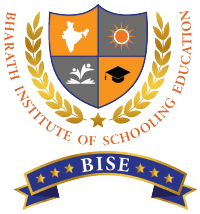In today’s rapidly evolving education landscape, open schooling has emerged as a revolutionary approach that offers students a unique and flexible way to learn. With a focus on flexibility and freedom, open schooling has gained traction for its ability to cater to diverse learning needs.
This article delves into the various advantages of open schooling, highlighting how it empowers students to take control of their education journey.
Understanding Open Schooling

At its core, open schooling is a pedagogical philosophy that champions autonomy and individuality in learning. It transcends the boundaries of traditional classrooms, offering students the agency to craft their educational journeys according to their preferences and aspirations. It is a paradigm shift that reimagines education as a collaborative and self-directed endeavour.
Advantages of Open Schooling
It offers a plethora of advantages that revolutionize the way we approach education. By prioritizing flexibility and freedom, this innovative approach empowers students to embark on a journey of self-discovery and intellectual growth.
Here are some key Advantages of Open Schooling:
Flexibility: Tailoring Learning to Individual Needs
The hallmark of open schools is their unparalleled flexibility. Unlike the rigid structures of conventional education, this type of schooling acknowledges that each learner is unique. It grants students the freedom to choose subjects, set learning goals, and even determine the pace at which they progress.
This personalized approach caters to diverse learning styles and ensures that education aligns with the individual’s aptitude.
Freedom to Learn at Your Own Pace

This type of schooling liberates students from the constraints of uniform timelines. It recognizes that the journey of acquiring knowledge is not a uniform race but a personalized expedition. In an open schooling environment, learners are empowered to explore subjects deeply, spending more time on areas that intrigue them while swiftly navigating through concepts they grasp quickly.
Customized Learning Environments
Open schools extend beyond the boundaries of physical classrooms. Learners have the autonomy to select environments that amplify their learning experiences. Whether it’s a cozy corner at home, a bustling café, or a serene park, the choice of the learning setting rests with the student. This customization fosters comfort and concentration, enabling a more immersive learning journey.
Fostering Self-Motivation and Responsibility
With great freedom comes great responsibility. This type of schooling cultivates essential life skills, including self-motivation and responsibility. Students are entrusted with charting their academic paths, setting goals, and managing their progress. This self-driven approach not only prepares them for higher education and careers but also equips them with tools for lifelong learning.
Embracing Real-World Experiences
Open schooling bridges the gap between theoretical knowledge and real-world application. It encourages students to engage in practical experiences, internships, and community projects that provide insights beyond textbooks. By interacting with the tangible aspects of their subjects, learners gain a holistic understanding and develop problem-solving skills that transcend academia.
Inclusive Education for All
Education should be a universal right, accessible to all. Open schooling aligns with this ethos by eliminating barriers to education. It accommodates diverse learning styles, disabilities, and geographical limitations. This inclusivity ensures that education reaches individuals who may have otherwise been marginalized within traditional systems.
Nurturing Holistic Development
While academic excellence is a vital aspect of education, Open schools recognizes the significance of holistic development. Students are encouraged to pursue passions beyond the curriculum, be it sports, arts, or hobbies. This nurturing of holistic growth shapes well-rounded individuals who excel not only in academics but also in life.
Building Strong Time Management Skills
Effective time management is an indispensable skill in the modern world. Open schooling hones this skill by requiring students to allocate time to various subjects, activities, and responsibilities. The art of balancing academics with personal pursuits fosters discipline and organizational abilities that serve students well in their future endeavours.
Overcoming Barriers to Traditional Education

For individuals facing geographical challenges, health constraints, or unconventional circumstances, traditional education might be elusive. Open schooling extends a lifeline, offering an alternative route to education. It paves the way for learning without borders, enabling anyone with a thirst for knowledge to quench it.
Enhancing Technological Proficiency
In an era driven by technology, digital literacy is no longer an option but a necessity. Open schools equip students with the skills to navigate digital resources, collaborate online, and adapt to emerging technologies. This proficiency prepares them for the digital landscape of higher education and the professional world.
Collaborative Learning Opportunities
Open schools thrives on collaboration and interaction. Virtual platforms, discussion forums, and group projects foster a sense of community among learners. By sharing ideas, debating concepts, and collaborating on assignments, students develop teamwork and communication skills that are invaluable in their personal and professional lives.
Conclusion
The advantages of open schooling extend far beyond the conventional boundaries of education. By championing flexibility and freedom, open schooling empowers learners to become architects of their intellectual destinies. As we navigate an ever-evolving world, open schooling stands as a testament to the boundless potential of human curiosity and the transformative power of innovative pedagogical approaches.
Frequently asked questions
No, It can cater to learners of all ages, from children to adults seeking continuous learning.
While open schools offer a transformative approach, traditional education remains valuable, and the choice between the two depends on individual preferences and goals.
No, these are applicable to all areas of life. They are not limited to specific professions or fields but are beneficial to individuals in various personal and professional contexts.
It integrates real-world experiences, promoting practical skills and problem-solving abilities that are essential for success beyond academia.
They play a vital role in building and maintaining positive relationships. Effective communication, empathy, and interpersonal skills contribute to healthier and more harmonious interactions with others.
Parents become partners in the learning journey, offering guidance and support to ensure a conducive environment for the student's growth.
Many higher education institutions recognize open schools and appreciate the diverse skill set and self-motivated nature of students who have experienced it.
